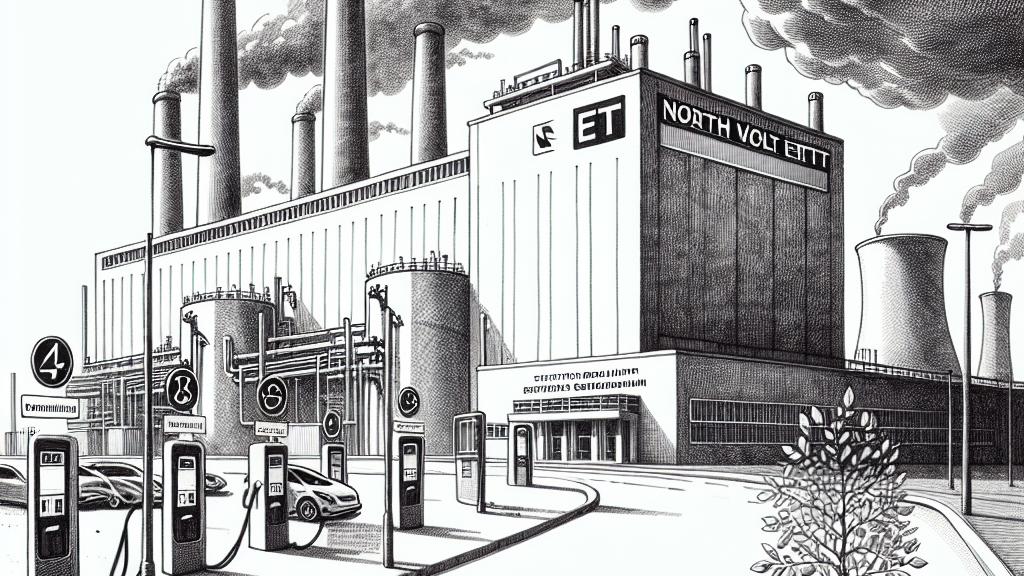Northvolt Announces 25% Workforce Reduction in Sweden Amidst Cost-Cutting Strategy
Overview
- In a critical move, Northvolt will cut 25% of its workforce in Sweden to streamline operations.
- The decision impacts around 1,600 employees, significantly affecting the Skellefteå factory.
- Amid economic challenges, the firm aims to bolster large-scale battery production while navigating a turbulent market.

Understanding Northvolt’s Bold Decision
Amidst a backdrop of economic uncertainty, Northvolt, a leading Swedish battery manufacturer, has unveiled its decision to reduce its workforce by a striking 25%. This move, which translates to approximately 1,600 job losses—most notably at the Skellefteå facility known as Northvolt Ett—is not merely a reaction to immediate pressures but a strategic recalibration aimed at long-term growth. As inflation continues to hamper consumer spending and investor confidence wavers, Northvolt recognizes the urgency of redirecting resources toward their core mission: enhancing the production capacity necessary to meet the rising demand for electric vehicle batteries. This shift highlights a critical juncture in the EV sector, underscoring that survival often necessitates difficult choices.
The Ripple Effects of Job Cuts
The repercussions of Northvolt's decision resonate throughout the company and the broader industry, revealing a landscape that is anything but stable. With approximately 1,000 of the cuts affecting the Skellefteå site, a hub for the company's operations, the layoffs symbolize a transition toward a leaner and more focused production model. Furthermore, along with these job reductions, Northvolt has chosen to suspend ambitious expansion plans, initially aimed at significantly increasing production capacity. This pivot reflects a reality many in the EV industry are facing; take, for example, Our Next Energy, which recently had to downsize in response to sinking demand and investor hesitation. Highlighting these actions not only illustrates the shared challenges in the sector but also emphasizes the creativity and resilience companies must exhibit to adapt and thrive in fluctuating economic conditions.
Navigating the EV Market Landscape
As Northvolt navigates this complex terrain, it becomes essential to understand the broader context shaping the electric vehicle market. The company’s recent announcements echo trends seen across the industry, where firms like Rivian and Our Next Energy are shifting strategies in light of reduced consumer demand and tightening financial conditions. Additionally, factors such as rising costs of living and high-interest rates are influencing purchasing decisions, further complicating the landscape for EV makers. Nevertheless, Northvolt's CEO, Peter Carlsson, remains optimistic, stating that focusing on efficiency and core operations is vital during these challenging times. This approach not only serves to strengthen Northvolt's positioning in the market but also signifies a commitment to sustainability, aiming to emerge stronger and more innovative as conditions improve. Ultimately, the decisions made today may lay the groundwork for a more resilient and adaptive electric vehicle industry in the future.

Loading...